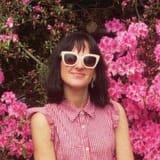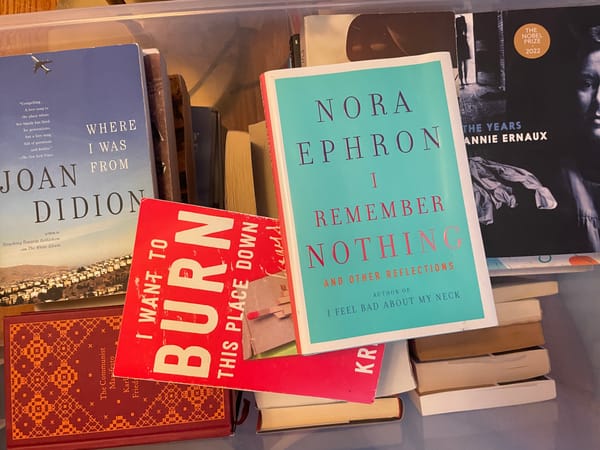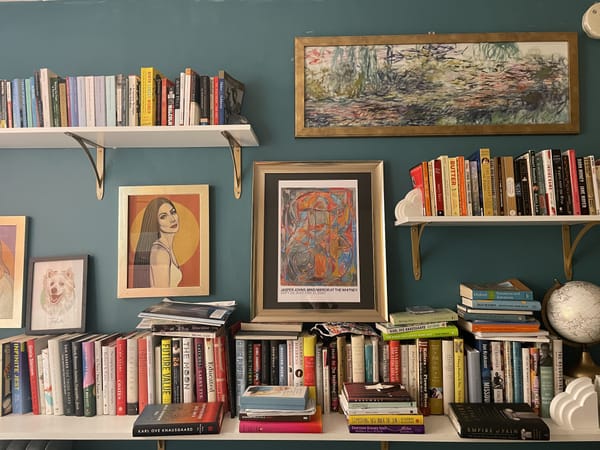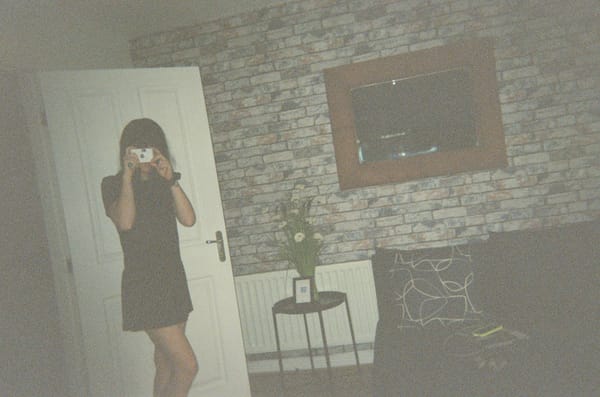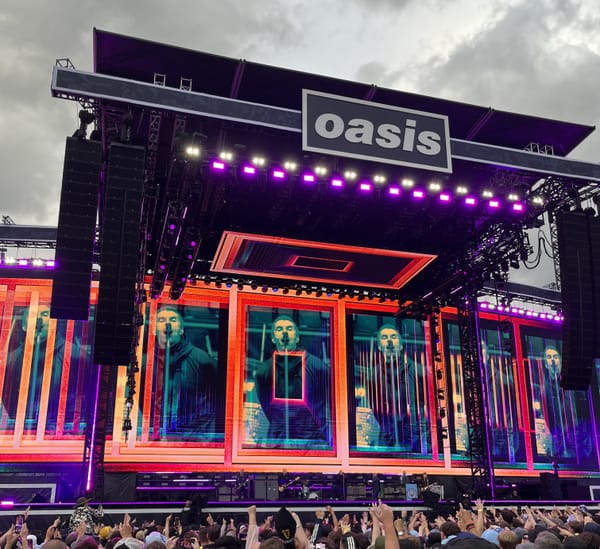Reading in Review
A debate I have with myself at the start of every new year is whether or not to keep a list of the books I read throughout the year. To me, setting reading goals feels like gamifying reading and corrupting the nature of my own reading habits.
I am an avid reader, but my ability to do so comes and goes in waves. The inconsistency used to scare me — what if *this* slump is the one that turns me into an adult who no longer reads books, the enduring passion of my life?
Now, I no longer fear these down periods. They’re typically followed by a burst of spending all of my free time reading. (However, audiobooks have really begun to get me through the quieter periods. Sometimes I just need the information delivered to me passively.)
This is the first year, however, that I wish I had kept a detailed reading log. I experienced a lot of change and ups and downs. It would probably be useful to me to be able to revisit a list now and look at the trends that may or may not have arisen while the rest of my life played out.
So, I think next year is the year I begin recording the books I read. There will be no goals, but it does seem to me now like it is useful information.
Anyway, this year is coming to a close and at the risk of revealing too much about my psychological portrait, I would like to discuss some of the books that did really stick with me this year. I’m not a book reviewer or critical reader (though I am incredibly fortunate to have Maris Kreizman as a close friend and a person I call my “book dealer” as I typically leave her home with a stack of books). This is just what these books have meant to me. I hope you all had a great year in reading (or film, or television, or fine art or whatever is your comfort medium).
The book that moved me the most this year was Septology by Jon Fosse. Originally, I intended to read Aliss at the Fire, but I spent a day combing bookstores big and small in Manhattan and Brooklyn and they were seemingly sold out of it? So, I just decided to make the insane choice and purchase Septology from Greenlight Books in Brooklyn.
Septology, a very long book in seven parts about a lonely man who confronts alternate versions of his own life, was surprising to me in the way it inspired tranquility and comfort in me. Each section begins and ends the same way and the interim is a stream of consciousness that felt to me more like flowing down a canyon river than riding along with someone else’s anxiety. The repetitive nature of the book and ritualism of the primary character helped me reflect on my own erratic search for comfort and rigid thinking on the self-narrative of my life and the human ability to cohabitate with physical and emotional pain.
The book that I enjoyed the most was The Anthropologists by Ayşegül Savas. This was a recommendation from Maris that I read in one sitting on a flight home from Paris. I am so pleased to see it on so many year-end-lists. The Anthropologists is a really pleasant meditation on the way relationships are constructed by the people in them and the agency we have over the path they take. I also liked that in addition to Asya and Manu, a primary character was their friend Ravi, who they just hung around with casually all the time.
Something I think about a lot is that my many close adult friendships don’t often offer many opportunities for just being comatose and sloth-y in the way I spent a lot of time with friends in my early 20s. Typically, that mindless snacking and Staring At Phone is only comfortable for me in a romantic relationship. It was really surprising and enjoyable to see multiple forms of emotional intimacy presented in an ordinary way.
The book that surprised me the most — and please do laugh at this — was The Corrections by Jonathan Franzen. I decided to finally give it a chance after reading the New York Times’ controversial best books of the century list, which is sort of a silly thing to be the tipping point on that one.
Hear me out: I was way too young to understand the impact and intention of The Corrections when it was released. I didn’t even get the full context of Franzen’s irritating promotional cycle for the book! All I knew was that by the time I reached high school and early adulthood, Franzen was a hero to pretentious men and the enemy of thoughtful women, of something. Franzen’s personal reputation killed my interest in his work, and I am glad I didn’t touch any of it until I developed a more mature and nuanced perspective on literature and gender (and he mostly shut up).
I loved The Corrections and was impressed by the emotional acumen displayed by even the female characters in the book. I can’t believe he really did what he set out to do in writing a novel that is both literary and accessible. I don’t know if I will read more Franzen because I feel so satisfied by my surprising enjoyment of The Corrections. Enjoy your birding, buddy, and thanks.
The genre I read most this year was women blowing up their lives. My therapist pointed this one out to me. I really need to keep that book log next year.
Let me start with Leslie Jamison, whose work I have loved since her essay collection called The Empathy Exams (I gave a copy to my grandma). In the weeks leading up to the release of her divorce memoir, Splinters, I re-read her entire canon in chronological order. Jamison is the master of personal nonfiction, and I have to admit, this odyssey was an act of lunacy. I spent so much time in this woman’s head, especially while revisiting The Recovering, a brilliant but lengthy memoir. After re-reading The Recovering, I really ached for her while reading Splinters. Her long search for stability in The Recovering resulted in the hopefulness of marriage and motherhood in Splinters, with the marriage quickly falling apart. This is, to me, a portrait of a nightmare but it is also a depiction of recovering and reconfiguring when life no longer goes according to plan.
Shortly thereafter, I read All Fours by Miranda July and completely lost my mind. This seemed to be the consensus experience of most of the people in my life. As a woman in her mid-30s, it genuinely terrified me to think about the way my priorities and hormones might change in a decade. July presents an incredibly extreme portrayal of a female midlife crisis, and did so in a partial effort to warn women like me about the way my life might change in my 40s, but it still shook me to my core. The journal entries I wrote in the days after finishing All Fours are, I have to admit, almost as unhinged as the book itself.
And, finally, the book that devastated me the most was Demi Moore’s memoir, Inside Out. I read it in the two days after seeing The Substance and I was shocked and gutted (not literally) by the combination of the two. I cannot believe Moore’s ability to plumb the depths of her own experience to star in The Substance. A horror film about the horrors of her own experience in Hollywood! Her memoir crushed me because she details, relationship-by-relationship (mother, husbands, children), the way that her low self-worth has driven the course of her life. It does seem like she has a great therapist now, though.
There were many other books along the way that certainly filled out the fabric of this year in reading. Maybe next year will be the year I get past page 300 in Infinite Jest. I’ll only have 365 days to finally figure out the flow of the plot.

